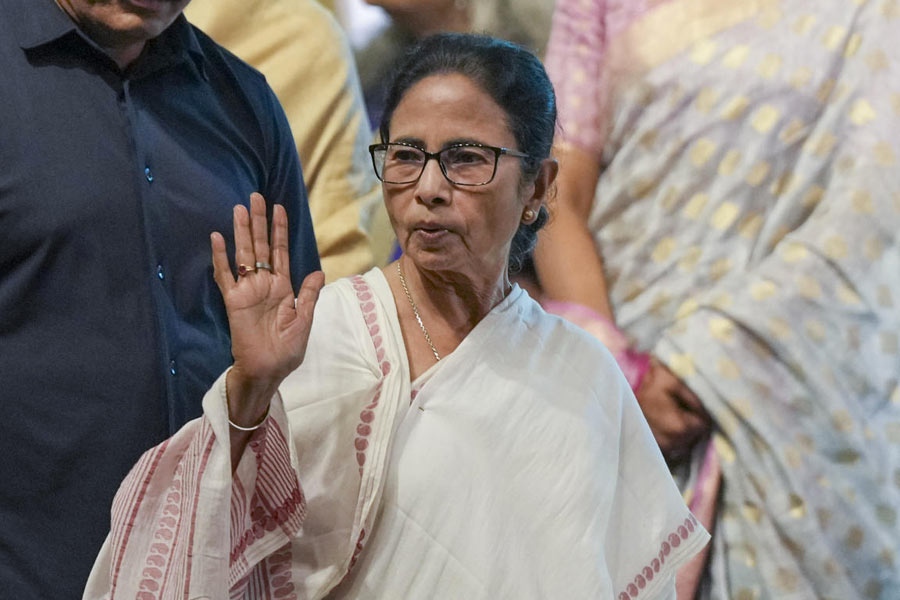Languages are meant to build bridges among communities in a multilingual republic. But language can be turned into a tool of persecution in the hands of politicians. Mamata Banerjee’s declaration, with a definite eye on electoral gain, that she would begin a second language movement to protect Bengali from, what she alleges is, linguistic terrorism has its roots in language being an agent of division. Ms Banerjee’s allegations are not to be dismissed though. There have been persistent reports that Bengali-speaking migrant workers — Muslims and Hindus — are being targeted, harassed, subjected to forcible detention and even deported by the administration of states — Rajasthan, Odisha, Chhattisgarh and also areas around Delhi are among these — where the Bharatiya Janata Party is in power on the suspicion of being illegal immigrants from Bangladesh. The controversy has not remained limited to Bengal. The Human Rights Watch has taken cognizance of the matter.
That Ms Banerjee will use this issue as an electoral trump card is to be expected. Bengali identity and its attendant cultural traits have been potent weapons in the political arsenal of the Trinamool Congress. Her decision to launch a campaign based on this theme in Birbhum yesterday offers glimpses of the strategy that Ms Banerjee is keen on employing to mobilise public opinion. The state BJP, at the receiving end of Ms Banerjee’s charge, finds itself in a spot of bother. Under its new state president, the party had been enthusiastically trying to build a connection with the Bengali ethos. Even the prime minister seldom misses an opportunity to mention Bengal’s icons and deities in his speeches these days. This assimilation project would definitely implode unless the BJP finds a way of countering Ms Banerjee’s line of attack. What would be interesting to watch is whether its defence is based on Suvendu Adhikari’s polarising views or the more conciliatory approach preferred by Samik Bhattacharya. It would be reductive — insensitive — to view the harassment of Bengali migrants from a political lens only. For it also reveals the multiple challenges faced by Bengal’s — and India’s — migrant workers. The lack of employment forces them to journey to other states in search of livelihood where they remain at the mercy of the State’s whimsical mind. Ms Banerjee has said that steps would be taken to bring Bengal’s migrant workers home. But this vague assurance will not address their economic and livelihood issues. The constitutional right of every Indian citizen to settle in any part of India appears to be under duress too.











